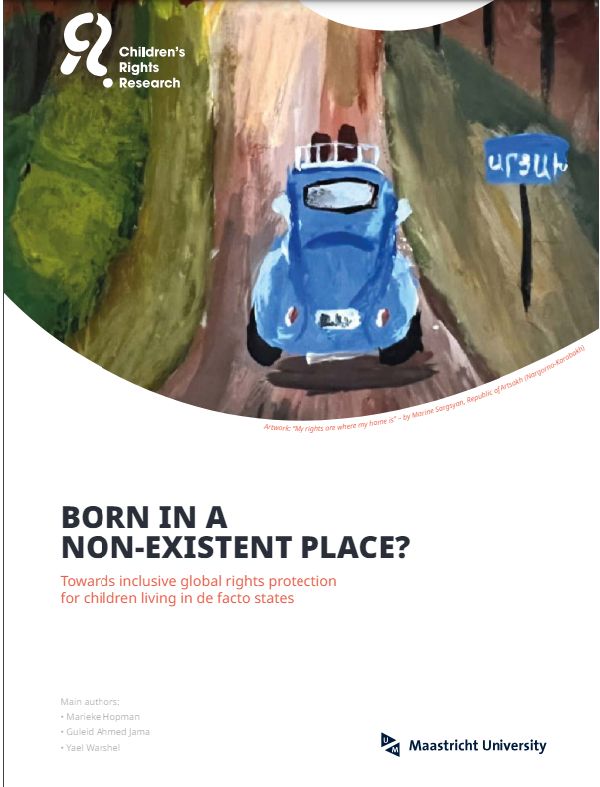Towards inclusive global rights protection for children living in de facto states
It is often said that human rights are universal. In this spirit, the UN Convention on the Rights of the Child bestows rights upon all children worldwide. However, there is one key category of children who are systematically excluded from international legal protection: children living in de facto states. The Children’s Rights Research team worked on a report that shows how the rights of children in de facto states can be included in de United Nations human rights monitoring and reporting cycles.
From 5 to 8 May, assistant professor Marieke Hopman and visiting PhD researcher Guleid Jama are in Geneva to present the report to the UN Committee.
De facto states explained
Per the definition used in this project, a de facto state is a political entity that operates as if it were a sovereign state, but is not a UN member state. They possess all four criteria for statehood as laid down in the Montevideo convention. This means these states have a permanent population, a defined territory, a government and the capacity to enter into relations with other states. Examples include entities like Somaliland, Transnistria, and the Turkish Republic of Northern Cyprus.
In total it concerns roughly nine million children. The territories of these states are the object of political and, often, armed conflict, created and sustained by adults. The resulting political instability gravely affects children.
Recommended solutions
The report offers four solutions for this problem. The first is to appoint a UN Special Rapporteur on children’s rights in de facto states.
The second is to include de facto states in UN children’s rights monitoring and reporting. This can be done in two ways: invite the de facto states to sign and ratify the UN Convention on the Rights of the Child, or invite (other) relevant states to include reporting on children’s rights in de facto states.
Another solution is to develop an approach for the consistent and equitable treatment of de facto states by the various UN Human Rights bodies.
Fourth, a public statement can be made, affirming that all children have rights and that the protection of the rights of children living in de facto states is a priority.
Want to know more?
The research team published the full report online. There’s also a summarized version, which is available in various languages.
More information on the general project can be found on the Children’s Rights Research website.
